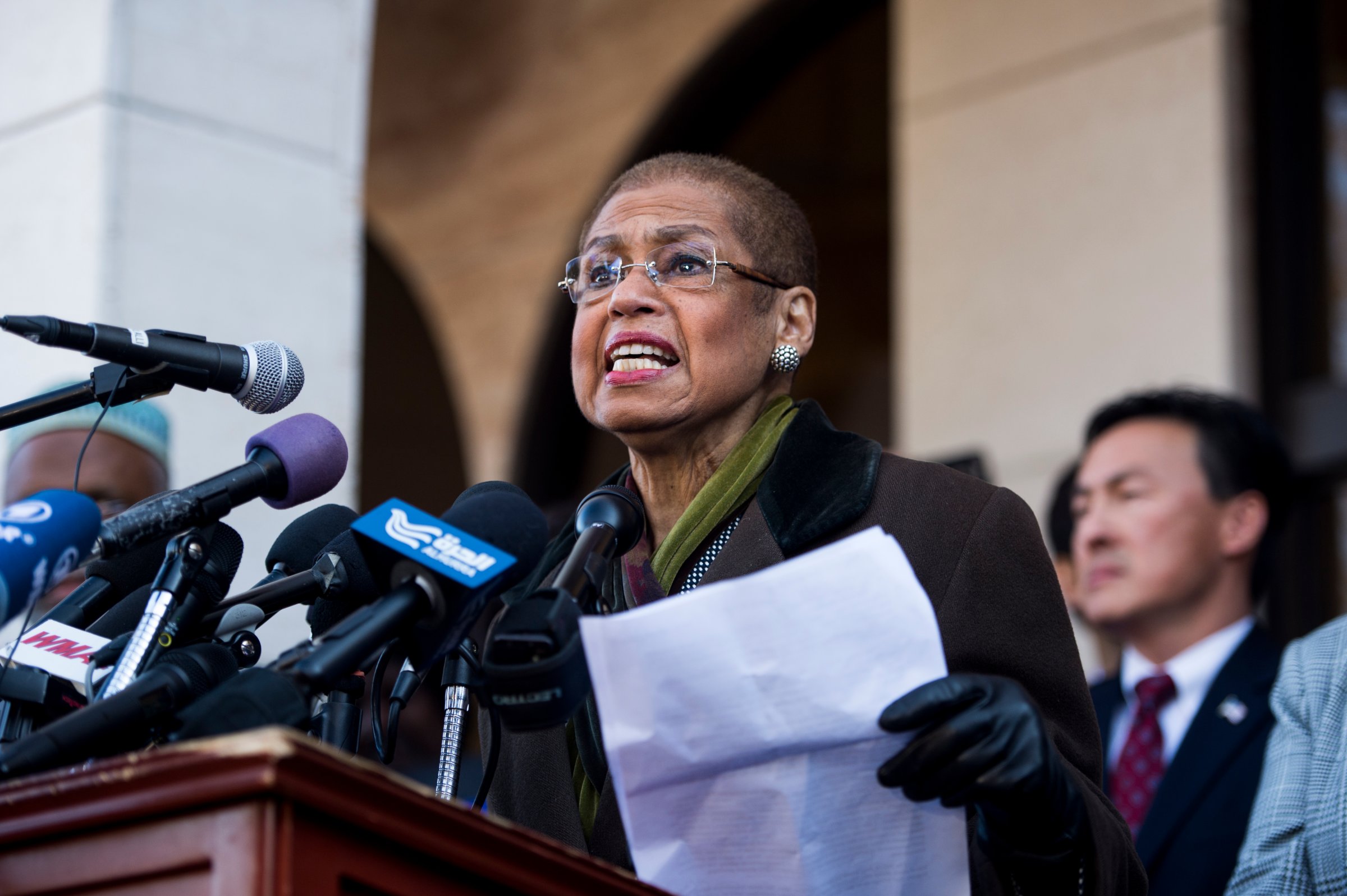
Black lawmakers are putting pressure on the FBI to help investigate the number of missing black minors in Washington, D.C., the Associated Press reports.
In recent weeks, social media users have been tweeting about the lack of media coverage of missing black and Hispanic girls in Washington, D.C. using the hashtag #MissingDcGirls. In the first three months of 2017, D.C. saw 501 cases of missing children and teens, many of whom are black or Latino. Twenty-two of these cases remain unsolved as of March 22
AP reported that Congressional Black Caucus chairman Cedric Richmond and Del. Eleanor Holmes Norton, who represents D.C. in Congress, penned a letter to Attorney General Jeff Sessions and FBI Director James Comey to ask that their departments “devote the resources necessary to determine whether these developments are an anomaly or whether they are indicative of an underlying trend that must be addressed.”
“Ten children of color went missing in our nation’s capital in a period of two weeks and at first garnered very little media attention,” Richmond, who asked to schedule a meeting with Sessions, wrote. “That’s deeply disturbing.”
According to D.C. police, there hasn’t been an uptick in the number of missing children. But they’ve been posting missing person announcements more frequently on their Twitter feed, sparking concerns. Many of the missing children were girls, including 13-year-olds Yahshaiyah Enoch and Aniya McNeil; 15-year-olds Juliana Otero, Jacqueline Lassey, Dashann Trikia Wallace, Dayana White and Morgan Richardson; and 16-year-old Talisha Coles.
Social media users have also brought up the still unsolved case of Relisha Rudd, who disappeared from a D.C. homeless shelter in 2014 when she was just 8 years old. Derrica N. Wilson, the co-founder and CEO of the Black and Missing Foundation, brought up Rudd’s disappearance in an interview with the AP, saying that she was fearful that human trafficking may have been a factor in recent cases. D.C. Mayor Muriel Bowser said that police have found no connection to human trafficking in recent cases, according to USA Today.
Wilson told Essence that the cases of missing white women are frequently covered by the media — but oftentimes, the disappearances of black and Latino women and girls tend to go unnoticed. “We know Blacks and Latinos or any persons of color who go missing, oftentimes don’t receive much-needed media coverage, which could drastically increase the odds of their safe recovery,” she said.
More Must-Reads from TIME
- Where Trump 2.0 Will Differ From 1.0
- How Elon Musk Became a Kingmaker
- The Power—And Limits—of Peer Support
- The 100 Must-Read Books of 2024
- Column: If Optimism Feels Ridiculous Now, Try Hope
- The Future of Climate Action Is Trade Policy
- FX’s Say Nothing Is the Must-Watch Political Thriller of 2024
- Merle Bombardieri Is Helping People Make the Baby Decision
Write to Samantha Cooney at samantha.cooney@time.com